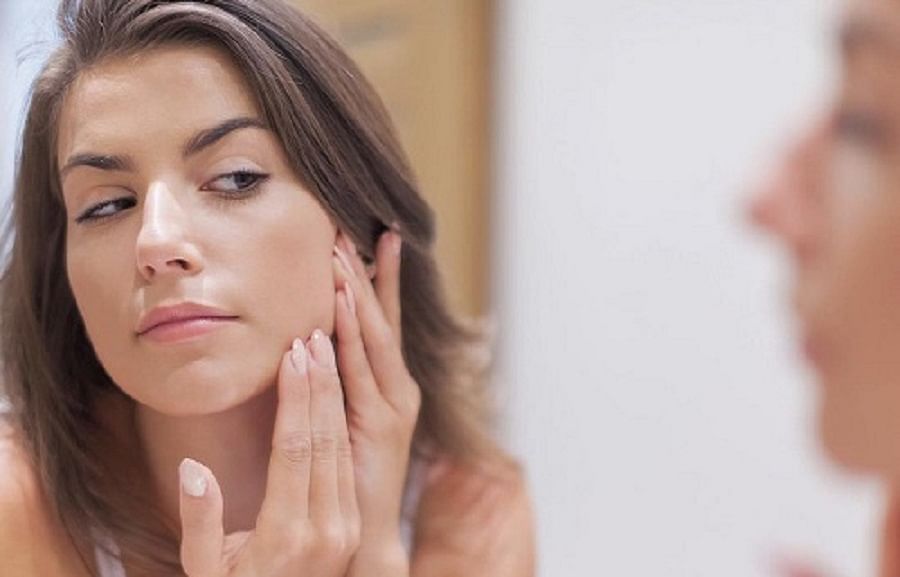After all those painful years battling puberty-induced acne, you’d think that by entering your 20s and 30s, your skin would cut you a break! Yet, many of us (Kendall Jenner included) either still struggle with acne, or suddenly experience an onset of adult acne that takes even longer to heal because our skin isn’t as resilient anymore.
While a bad breakout won’t “ruin your life forever” anymore, we understand that it still can be distressing, and annoying because you need more time to cover them up! Genetics, hormones, your diet and environmental factors all affect the sebum production in your face, so while there isn’t a one-size-fits-all cause to help with acne, here are 8 good, tried-and-tested habits you can adopt in your everyday life to help you win the battle of the zits.
#1. Sleeping more
Yep, beauty sleep is actually real. No getting enough hours of zzz’s every night is a big factor for many acne sufferers, and this is because the less you sleep, a) the less time your skin has to repair itself and b) your skin actually produces more sebum, which as you know, is what is clogging your pores and causing you to break out. Adults should aim to get between 7-9 hours of sleep every night, in order to promote healthy skin barrier function.
#2. Fixing your diet
It is true that you are what you eat – a diet that is high in refined carbs like white rice, bread and pasta and processed foods like deep fried foods and instant-whatever will definitely not help your acne. This is because these foods cause a spike in your blood sugar, which triggers a boost in insulin. When there is too much insulin in your bloodstream, it triggers changes in your system that can lead to the growth of pore-clogging cells and increase activity in your oil glands. Stick to whole grains, legumes, lean protein and loads of fresh veggies instead. This not only helps your skin, but also improves your overall health and could help with weight loss too.
#3. Never being lazy about your routine
We get it – we’ve all pulled 10-12 hour days at work and by the time we get home, we’re so tempted to skip the tedious skincare routine and heading straight to bed. This is a terrible idea if you suffer from sensitive and breakout-prone skin; all the grime, sweat and makeup from the day can and will clog your pores, basically guaranteeing you’ll wake up to a fresh crop of pimples. We’re not saying you have to force yourself to keep awake throughout your entire 12-step K-skincare routine, but at the very least wash and tone your face, apply your acne treatment potions and moisturise before hitting the hay. If that still sounds like too much, consider having a stash of efficient, multi-purpose skincare products for nights like this so you’re not tempted to skip your routine.
ALSO READ: Derm in the house: guide to different kinds of acne and how to deal with them
#4. Going military on cleanliness
To keep it short and sweet, anything that touches your face should be cleaned frequently. We’re talking makeup brushes and applicators (once a week), pillowcases (once a week), towels (use a fresh one daily) and your hands (never). Many of us are unaware that we are actually touching our faces frequently throughout the day by resting our head in our hands, massaging our foreheads and face-palming. Acne is caused largely by bacteria, so you need to be diligent and conscious to prevent them from getting spread to your face.
#5. Not over cleansing your face
Logically, you would think that the more you clean your face, the less likely you would breakout. This couldn’t be further from the truth – when you strip your face of essential oils and moisture, you’re not only irritating your skin and damaging your skin’s barrier, but actually encouraging even more breakouts. When your skin is too dry, your body produces even more oil to compensate, which causes you to breakout. Be gentle to your skin and wash your face just twice a day (and always after work outs), and follow up with a hydrating toner and a lightweight/oil-free moisturiser.
#6. Using gentle products
If your skin is acne-prone, the last thing you want to do is aggravate it further by using makeup and skincare products with pore-clogging, breakout-inducing ingredients! If your skin tends to be more sensitive, then make the effort to understand the ingredients that goes into your products and how they might be affecting your skin. Allergies aside, common ingredients that cause your skin to freak out are: artificial colour, lanolin, mineral oils, petroleum, isopropyl myristate, fragrances, cocoa butter and vegetable oil. Opt for all-natural products that are listed as non-comedogenic, and never buy dodgy products off the internet that you’ve never heard of before.
#7. Applying sunscreen everyday
Yes, even on rainy and cloudy days! Sunscreen is vital to your skin’s health as it protects your delicate skin barrier from the ravages of UV damage. Sun damaged skin is more prone to acne as it is thinner and weaker, thus less efficient at healing and protecting itself. Plus, all the UV exposure will make your inflamed breakouts look even worse as it triggers even more melanin increase – and trust us when we say it’s a lot harder to get rid of scarring than the actual pimple. Opt for non-comedogenic sunscreen, or moisturisers that also provide SPF protection so you won’t be tempted to skip it.
#8. Cutting out dairy
Our hearts did sink a little, but the truth is, dairy products like soft cheeses, milk and ice cream aggravate acne by causing inflammation in the body. There have also been studies that show that the hormones in cow’s milk react poorly with the hormones in our own bodies, which increases sebum production. Try cutting dairy out of your diet for 3 weeks and see if it makes a difference.
ALSO READ: 7 acne concealers that cover and actually treat and calm zits


